Bullying persists as a prevalent challenge in school environments, negatively impacting the mental and emotional health of children. In this article, we will explore the fundamental role of Jiu-Jitsu not only in physical development but also in the effective prevention of bullying. By fostering self-confidence, mutual respect, and coping skills, Jiu-Jitsu emerges as a valuable tool to create safer and more welcoming school environments.
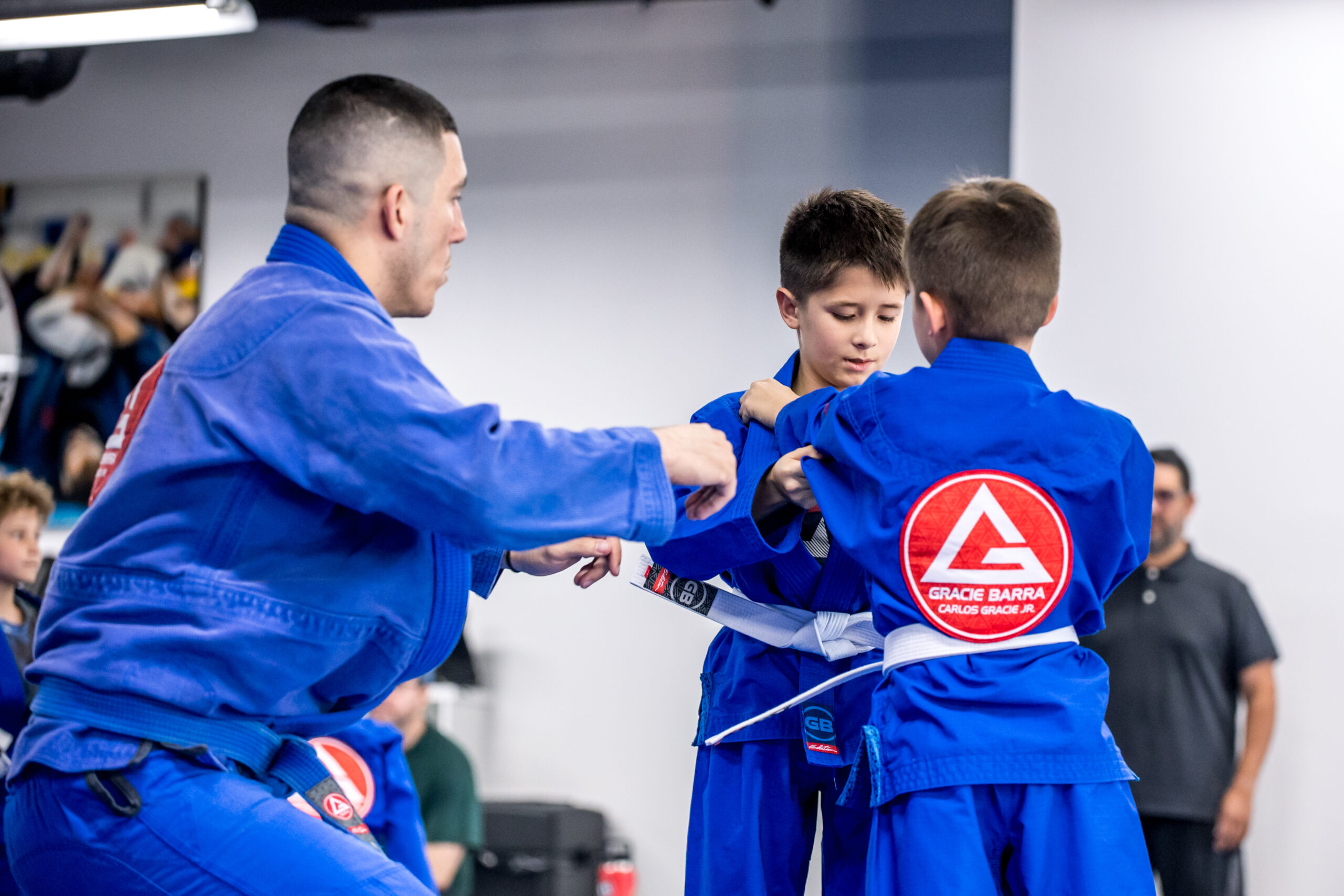
Development of Self-Confidence:
Furthermore, by facing constant challenges in regular Jiu-Jitsu practice, children develop an unwavering self-confidence. This inner confidence acts as a psychological armor, shielding against the negative effects of bullying.
Promotion of Mutual Respect:
Additionally, the atmosphere of respect on the mat is reflected in more respectful interactions in schools. Jiu-Jitsu establishes a community where diversity is not only acknowledged but also valued, thus contributing to the construction of more inclusive school environments. Moreover, by promoting fundamental values like mutual respect, Jiu-Jitsu creates a solid foundation for bullying prevention.
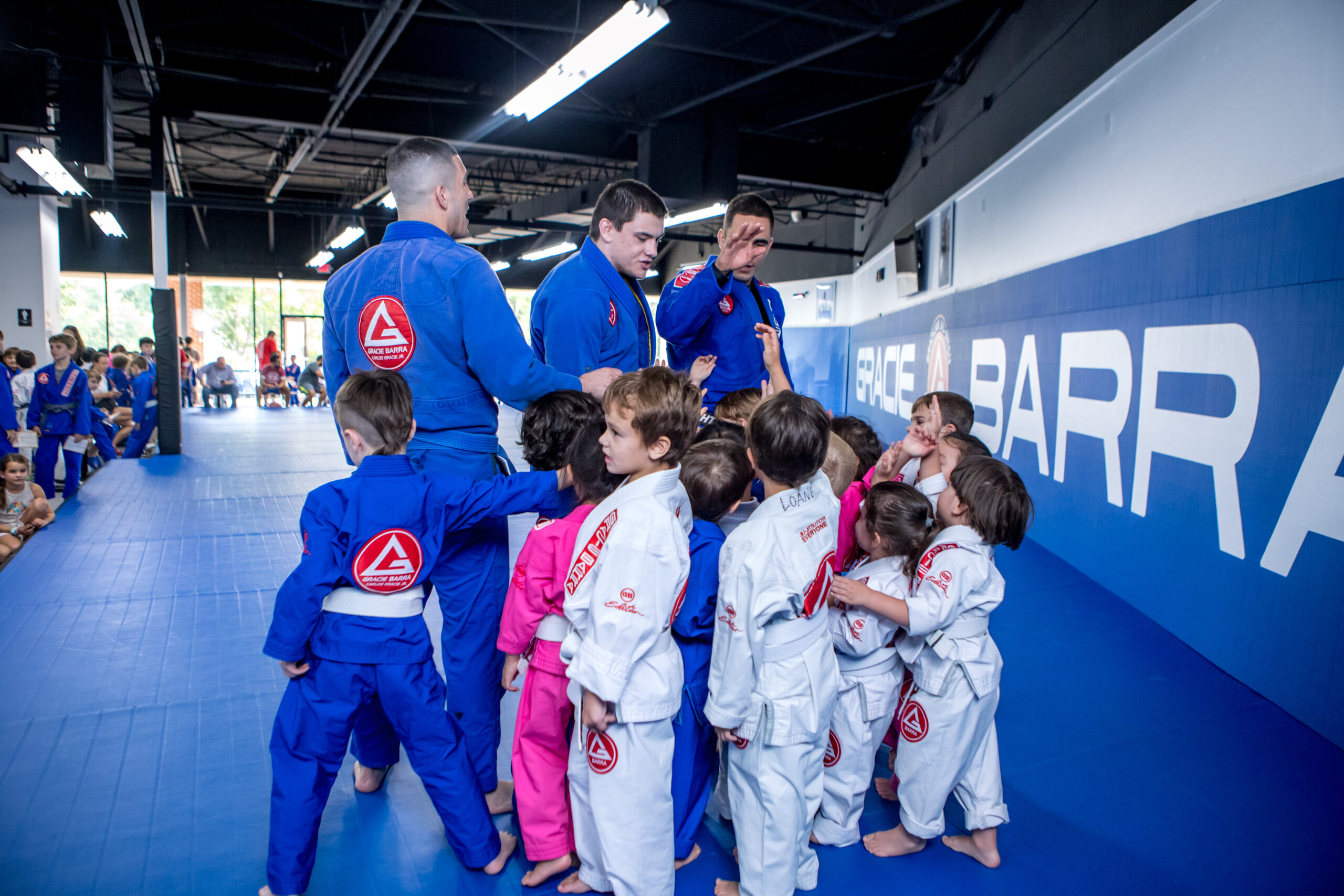
Resilience Through Jiu-Jitsu:
Resilience is a quality meticulously cultivated in Jiu-Jitsu. Overcoming falls, learning from defeats, and consistently practicing build the resilience needed to face bullying with strength and determination. Additionally, developing resilience not only strengthens children’s character but also equips them to overcome future challenges successfully.
Dealing with Harassment:
Jiu-Jitsu not only imparts personal defense techniques but also instills mental strategies to navigate bullying situations. From assertiveness to seeking help, children learn to confront harassment effectively. Furthermore, these strategies extend beyond the mat, being applicable in various everyday situations.
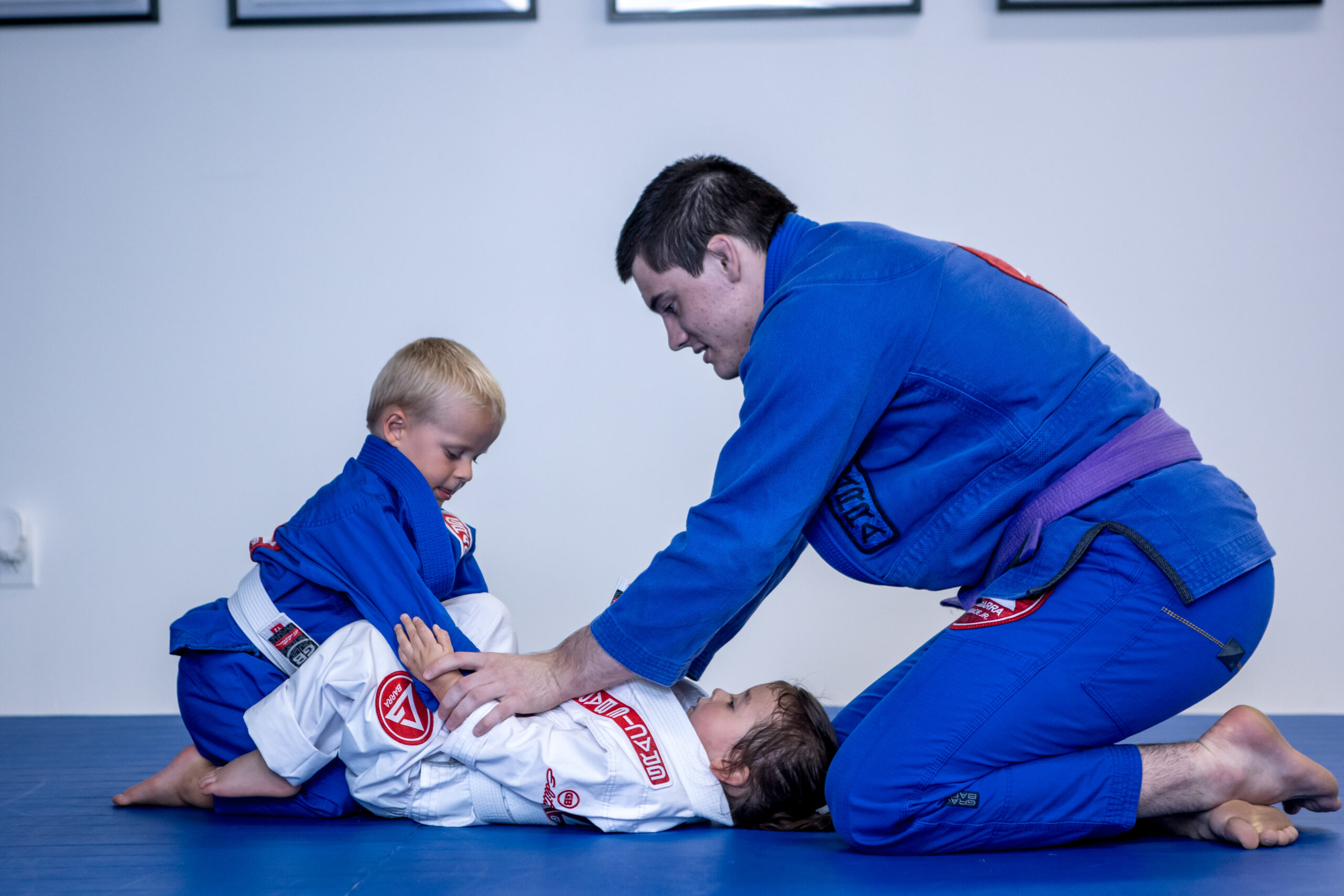
The Importance of Leadership in Prevention:
Jiu-Jitsu practitioners often become positive leaders. Additionally, by inspiring their peers, they play a crucial role in creating a healthier school culture. In this environment, bullying is rejected, and positive leadership is highly valued.
Development of Conflict Resolution Strategies:
Jiu-Jitsu, with its emphasis on peaceful conflict resolution on the mat, provides children with valuable skills. As a result, they can apply these strategies when facing bullying situations. Constructive dialogue becomes a powerful and effective tool for handling conflicts.
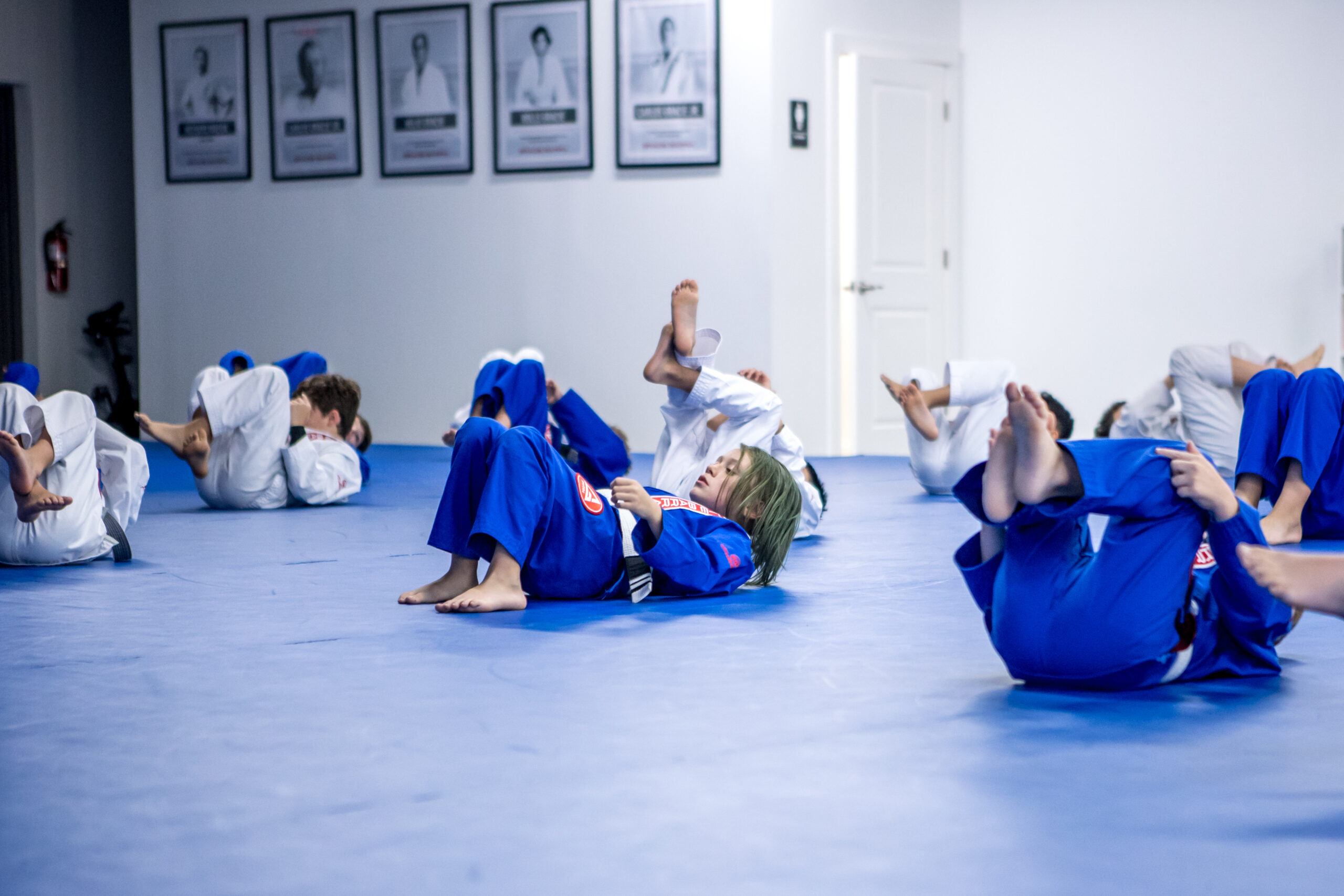
Valuing Diversity:
Jiu-Jitsu practice welcomes participants from diverse backgrounds. Promoting the appreciation of diversity in schools creates an inclusive environment where differences are celebrated rather than exploited.
Education About Bullying:
Jiu-Jitsu can be integrated into educational programs about bullying. By creating awareness about the various forms of bullying, schools can develop more effective preventive strategies.
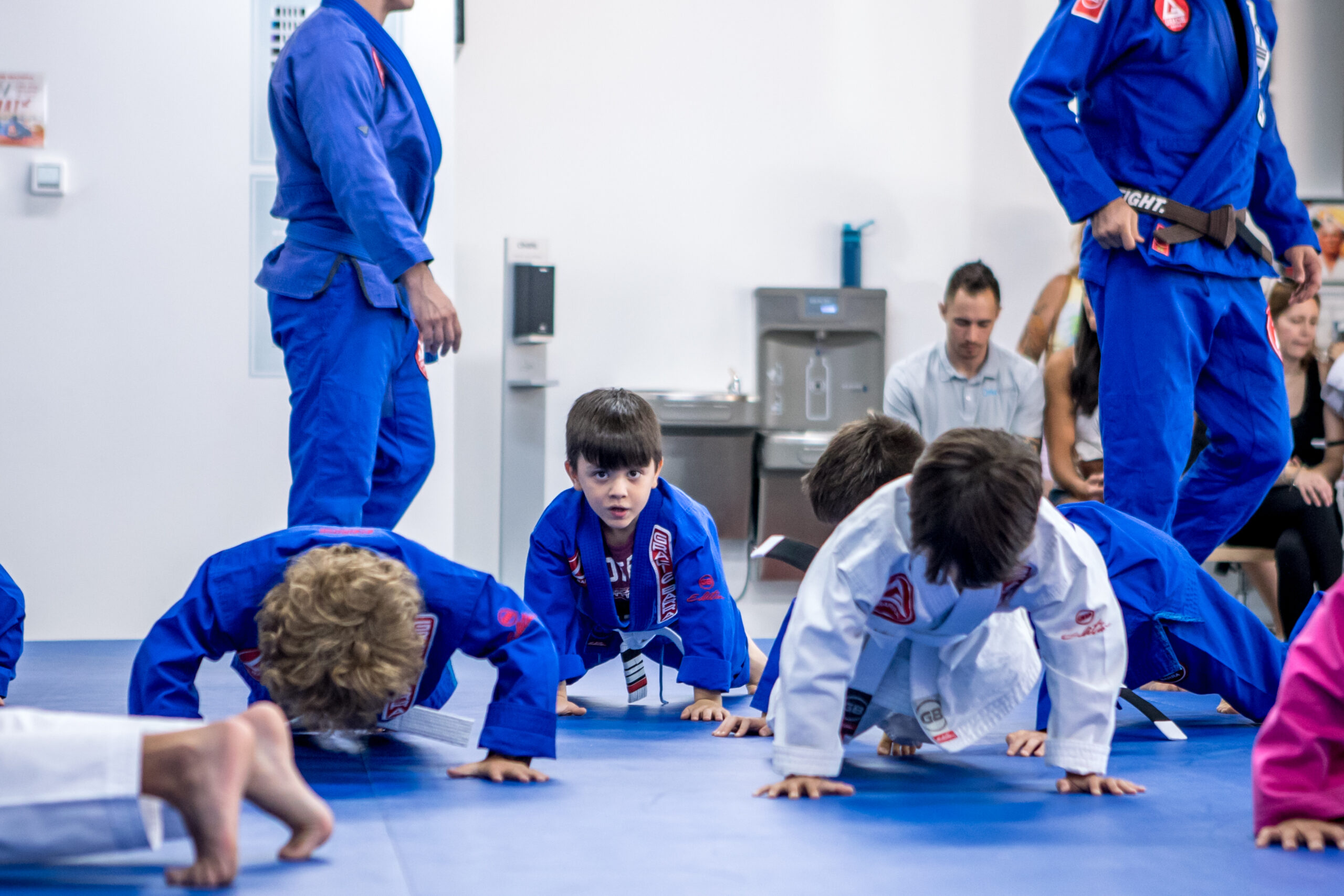
Parental Involvement in Prevention:
Active parental involvement is crucial. In addition to supporting Jiu-Jitsu practice, parents play a key role in promoting preventive values at home, encouraging empathy and respect.
Monitoring and Continuous Follow-up:
Bullying prevention is an ongoing journey. Monitoring and continuous follow-up are essential to ensure that the strategies implemented in schools continue to create safe environments in the long term.
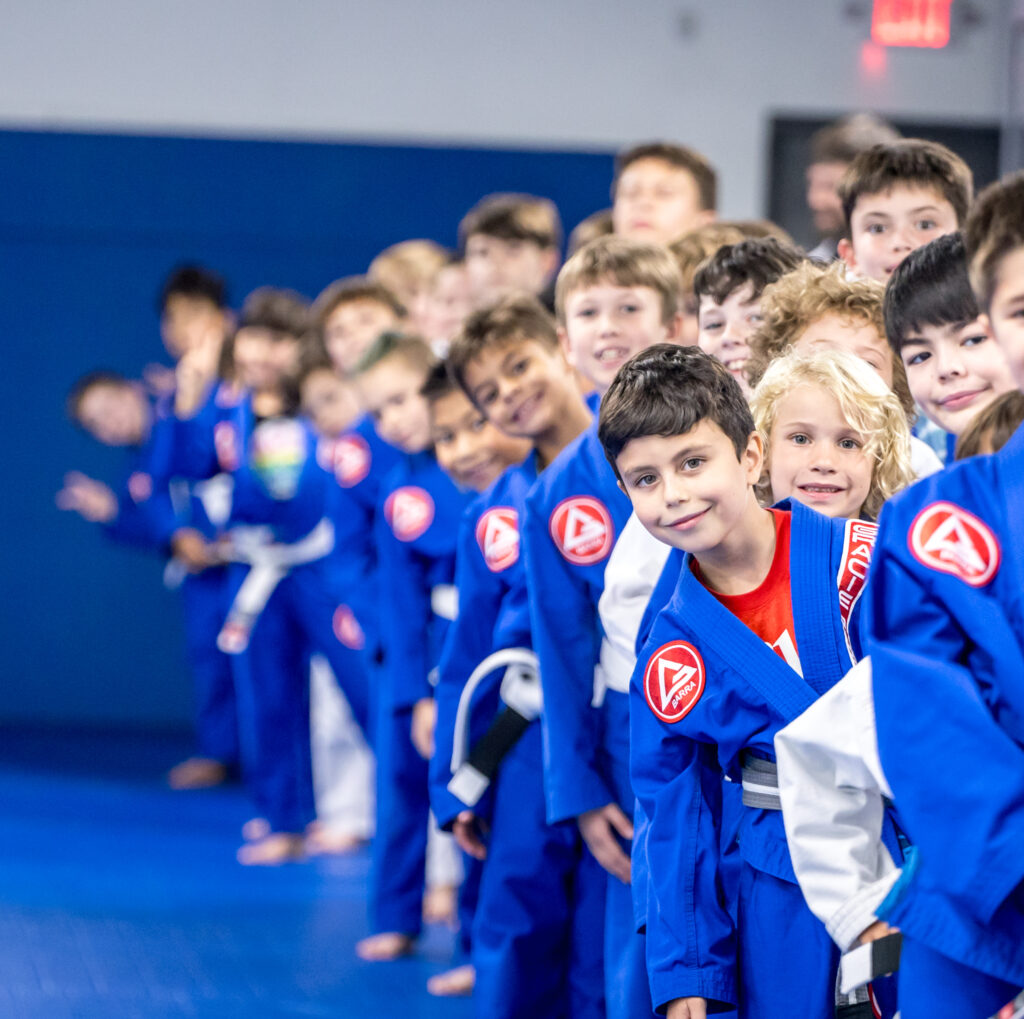
Understanding Bullying:
Bullying takes various forms, including verbal harassment, social exclusion, and cyberbullying. Deepening the understanding of these dynamics allows for a more effective approach to preventing and combating bullying.
Jiu-Jitsu as a Preventive Tool:
Furthermore, Jiu-Jitsu goes beyond physical training, incorporating values such as respect, discipline, and self-discipline. By internalizing these principles, children are better equipped to resist the pressures of bullying. Moreover, the regular practice of this martial art promotes not only physical development but also mental fortitude, which is essential in bullying prevention.
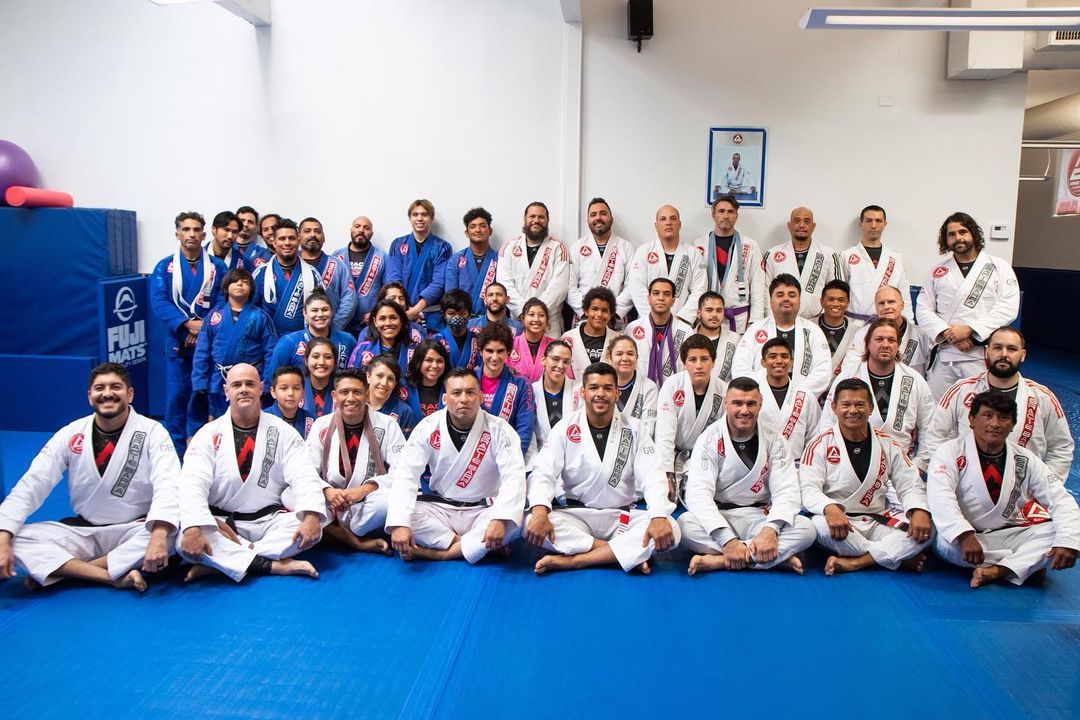
Communication Skills:
In the context of bullying prevention, effective communication plays a crucial role. Jiu-Jitsu serves as a platform for children to cultivate non-violent communication skills, providing them with the ability to express their feelings constructively.
Furthermore, the development of these skills is not only beneficial for dealing with bullying situations but also contributes to a more positive and interactive school environment. Moreover, the active promotion of constructive communication in Jiu-Jitsu serves as a solid foundation for children to face interpersonal challenges with respect and assertiveness.
Development of Empathy:
Additionally, Jiu-Jitsu exposes children to a variety of experiences, promoting the development of empathy. This enhanced ability to understand and share others’ feelings is crucial for preventing bullying attitudes. Additionally, by promoting empathy, Jiu-Jitsu contributes to creating a more compassionate and understanding school environment.
Collectively, these social and emotional skills are essential for building healthy relationships and fostering a culture of respect and acceptance among students.
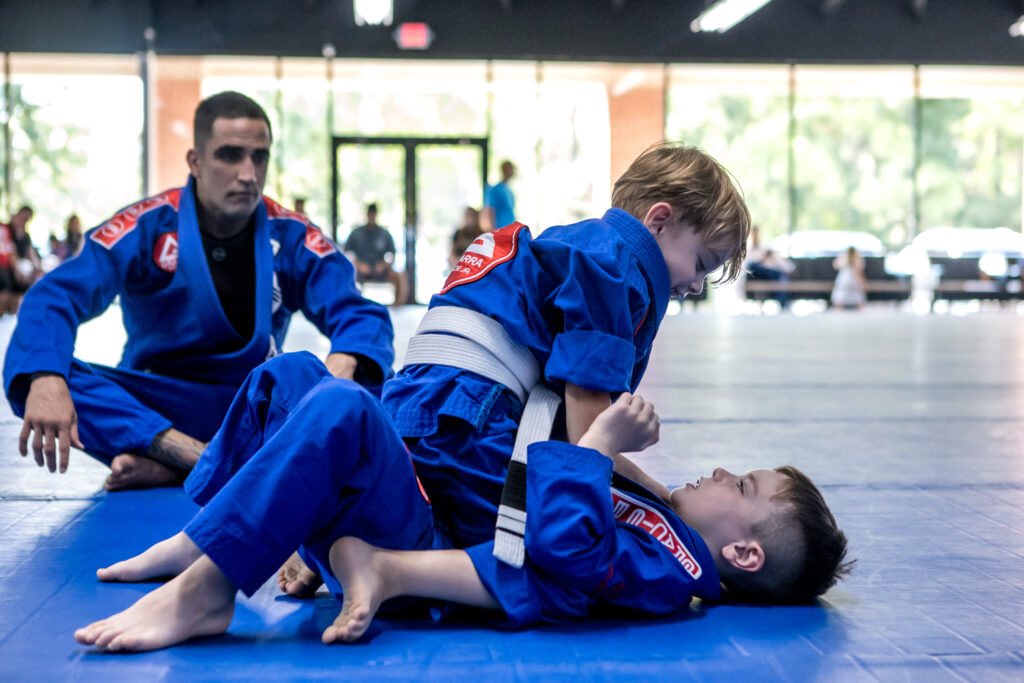
Building Positive Relationships:
Constant interaction during Jiu-Jitsu training fosters positive relationships among practitioners. These connections can create a support network, strengthening emotional resilience against bullying.
Cultivation of Team Mentality:
Jiu-Jitsu is often practiced in teams, promoting a cooperative mindset. This collaborative approach can be transferred to the school environment, encouraging solidarity and support among students.
In addition, fostering positive relationships not only enhances the training experience but also contributes to a sense of camaraderie and mutual encouragement among participants.
Cultivation of a Team Mindset:
Jiu-Jitsu is frequently practiced in teams, fostering a cooperative mentality. This collaborative approach can be extended to the school environment, promoting solidarity and mutual support among students.
Furthermore, by cultivating a team mindset, children learn to value the importance of working together and appreciate the individual contributions of each team member.
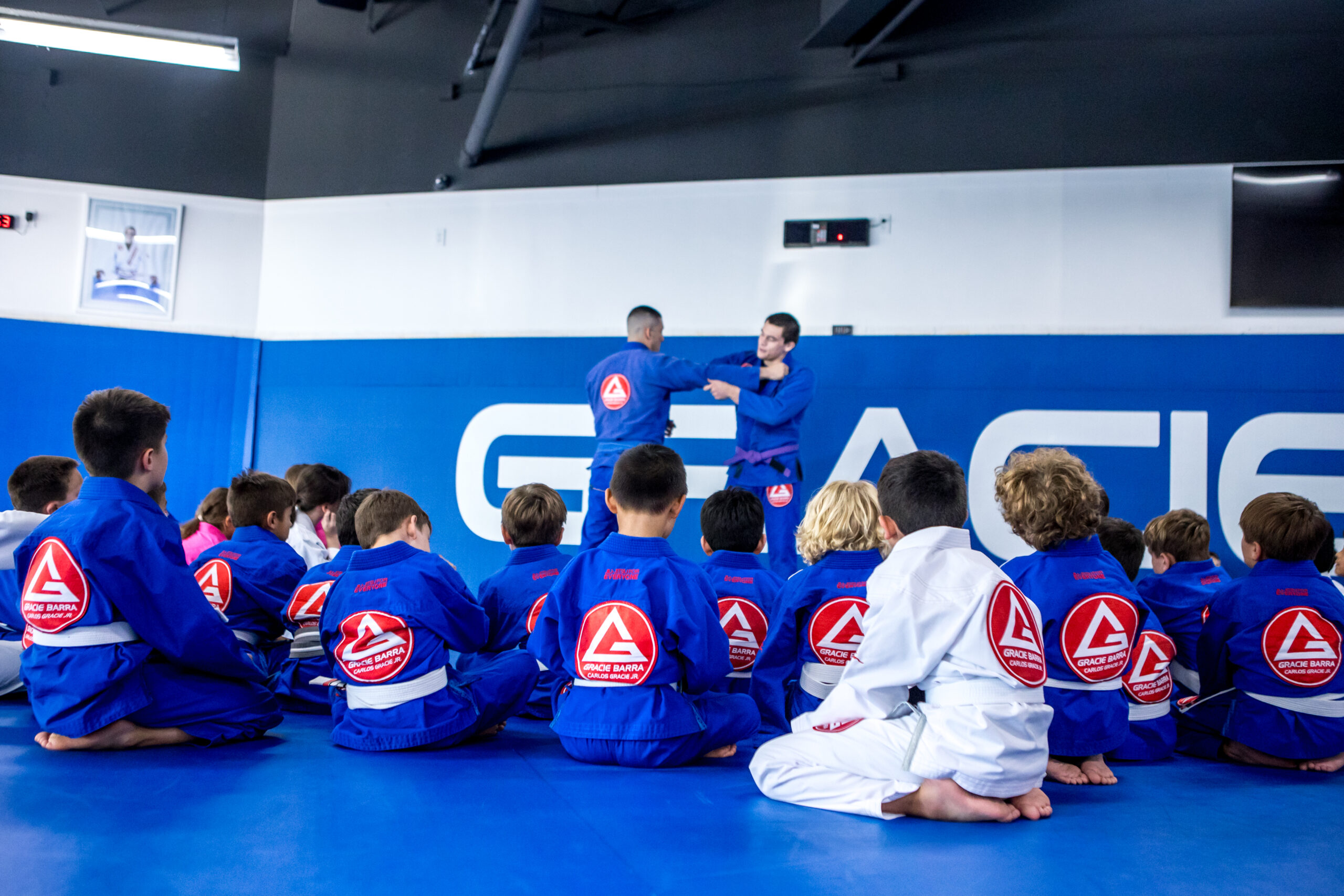
Empowerment Through Self-Defense:
Beyond physical techniques, self-defense knowledge in Jiu-Jitsu empowers children. Knowing they have the ability to protect themselves can deter potential aggressors and strengthen self-esteem.
Recognition and Institutional Support:
Schools that recognize and address bullying create safer environments. Jiu-Jitsu can inspire the implementation of anti-bullying policies and awareness programs in educational institutions.
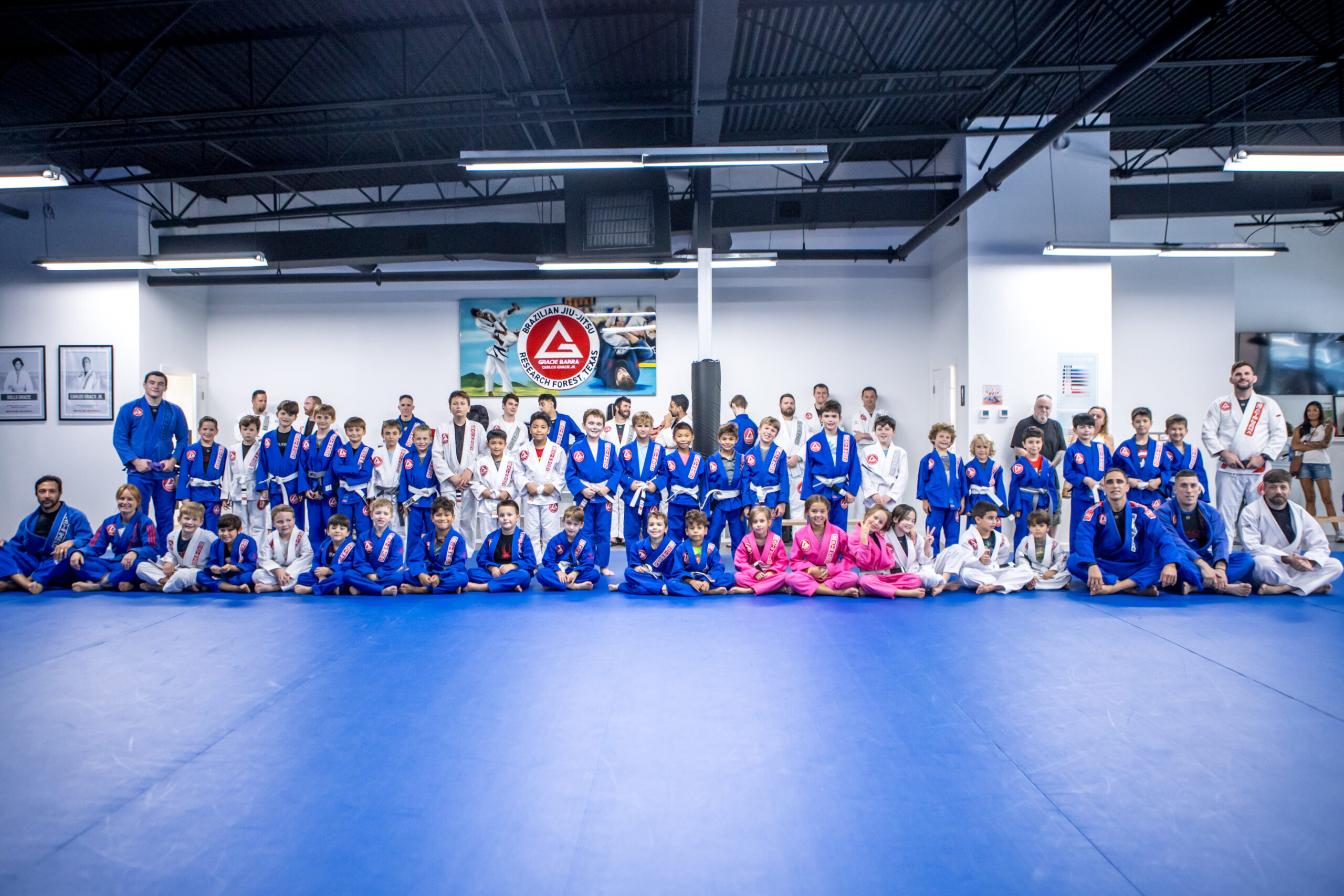
Fostering a Culture of Respect:
The culture of mutual respect cultivated in Jiu-Jitsu can be extended to the school environment. Encouraging respect among students contributes to a safer and healthier atmosphere.
Building Self-Esteem:
Self-esteem is built through constant Jiu-Jitsu practice. The confidence gained on the mat spills over into daily life, making children more resilient to the negative effects of bullying.
Conclusion: A Bully-Free Future, Empowered by Jiu-Jitsu
In summary, Jiu-Jitsu is not just a martial art but also a powerful tool in the fight against bullying. By instilling core values, promoting resilience, and shaping positive school environments, Jiu-Jitsu plays an active role in building a future where bullying is vehemently rejected. Thus, it envisions a school community that is empathetic, resilient, and thriving.



